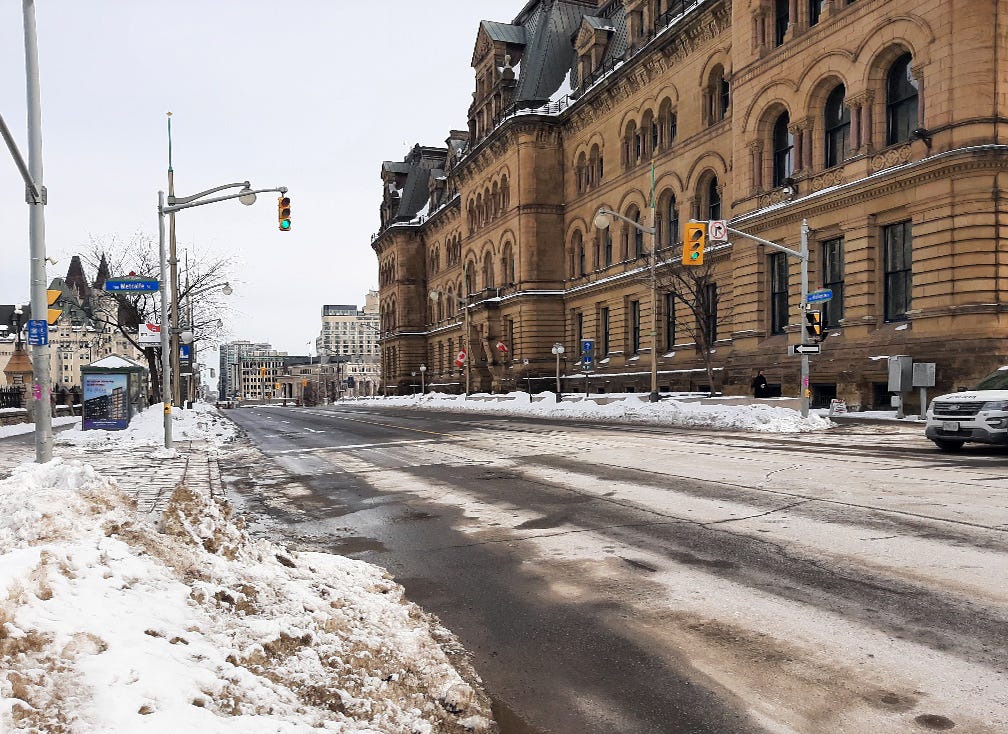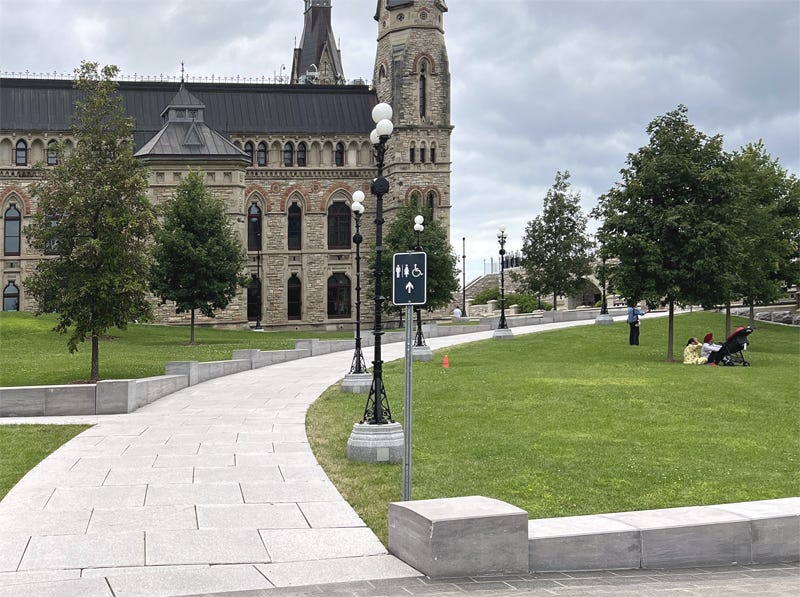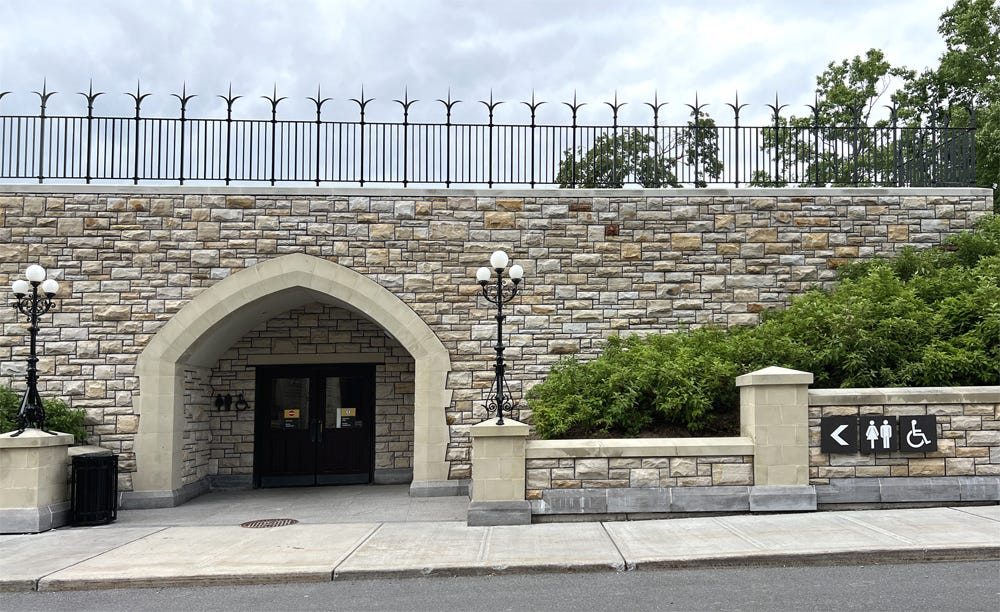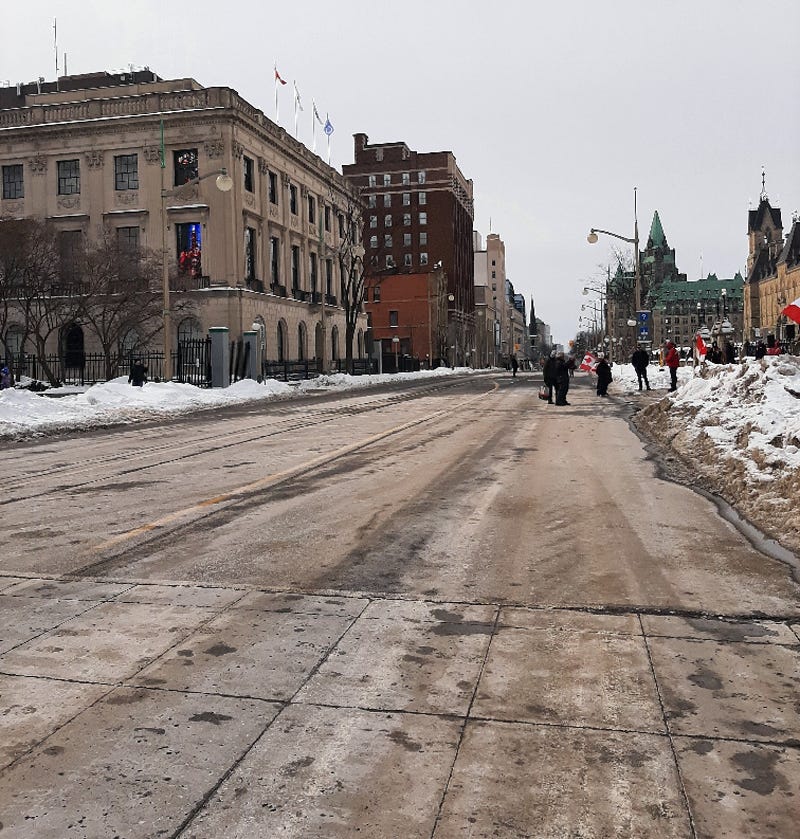read Part 1 here: Such a High
In late 2019, a new multi-million-dollar visitor's center was completed at Parliament Hill. Due to pandemic closures, those public washrooms had barely been used before the Freedom Convoy arrived in town. Spacious and modern, there are 15 stalls in the women's bathroom, 12 urinals plus five stalls in the men's, and two private, wheelchair-accessible spaces.
Katia can't understand why all of these remained closed throughout the protest. She noticed this the first Saturday. "There were several police lined up in front,” she says. “I asked, but there was no way to get in there. There were thousands of people. Why would police block off the public washrooms?"
Some members of Parliament called the truckers terrorists, says René. "But you know, you would be at the Convoy at 10 o'clock at night and there would be moms coming out with babies in strollers. And you go to them, 'What are you doing out so late?' And they tell you, 'With the truckers here, it's safe - it's even safer now than on Canada Day.'"
Katia chimes in, "And cleaner. The truckers shoveled the snow. They cleaned up the streets. You'd see small groups of people, volunteers, walking with trash bags and long-handled grabbers." It's her understanding the truckers themselves were collecting the garbage and hauling it away.
The pandemic brought out the best in some people, but also the worst. René says it revealed people's true nature. "We've been going to the same church for 20 years," says Katia. "Our children were baptized there, we got married there. We went regularly, we helped cook church dinners. And then the minister, in her sermon, talked about 'those idiots who didn't get vaccinated.'" A church that is normally so accepting, so inclusive, so welcoming of every flavour of minority suddenly wasn't. "And the congregation just went with it," Katia says softly. "It was heartbreaking. It wasn't right."
Her own father, who built a new life in this country as an immigrant, told her he never, ever expected things to turn authoritarian the way they did during the pandemic. “It shocked him."
In Ottawa, the crowd ebbed and flowed. For three weeks, people arrived from near and far. On weekdays, says René, the numbers would tick up during the evening. "You know, everybody got off work and went to Ottawa."
Throughout the protest, Katia witnessed many bills changing hands.
I was standing on Clarence's running board one night, and a big SUV, a dark-windowed Suburban came by. Quebec plates. The passenger rolls down his window, stretches out his arm, and gives Clarence a hundred-dollar-bill. And all the truckers before him, too, on that street. That's a lot of money.
Two weeks after it was all over, Katia and René went back to Ottawa. "It was eerie," she says. "It was a ghost town. There was a sadness, a different kind of chill in the air."
Barricaded by the police, "Wellington Street was, what's the word in English? A dead corpse of a street."

During the three, never-to-be-recaptured weeks of the trucker protest, Katia and René would leave their car in a parking garage. Then, she says, they'd "turn left and then left again onto Rideau Street. It was like walking through a curtain, like crossing into another dimension. People were smiling, they were radiant. You'd hear the music. You'd feel the vibe."








"three, never-to-be-recaptured weeks" <3
that's just beautiful!